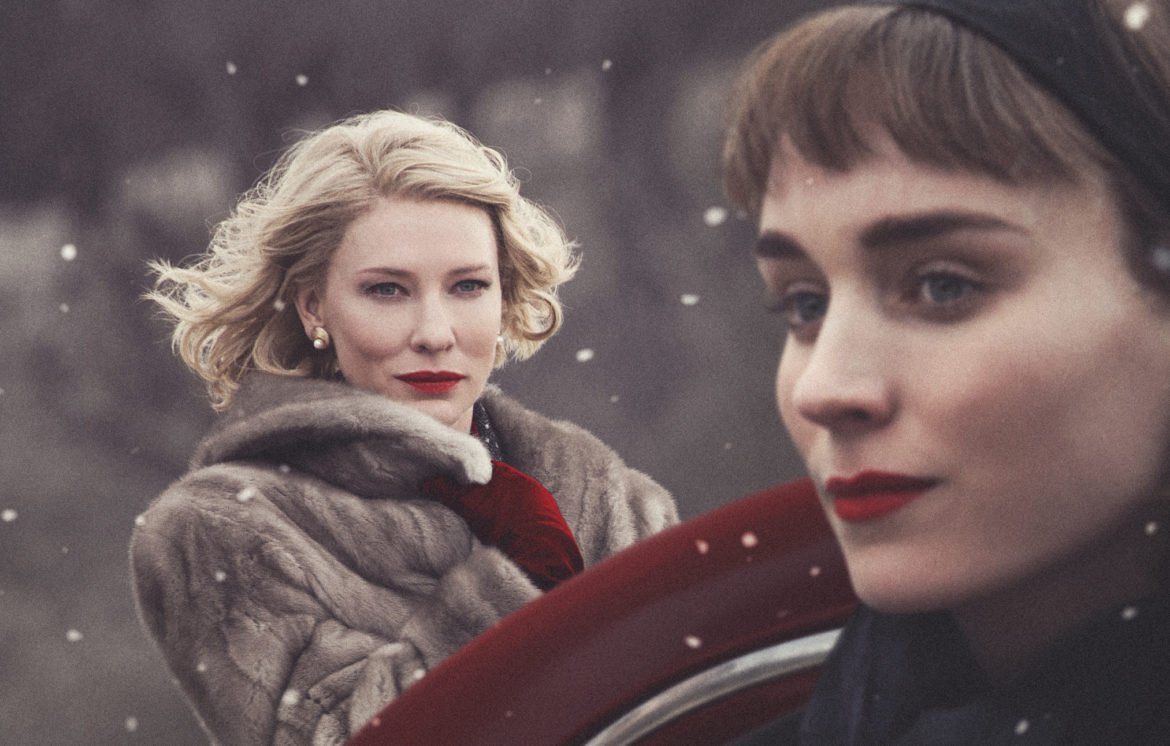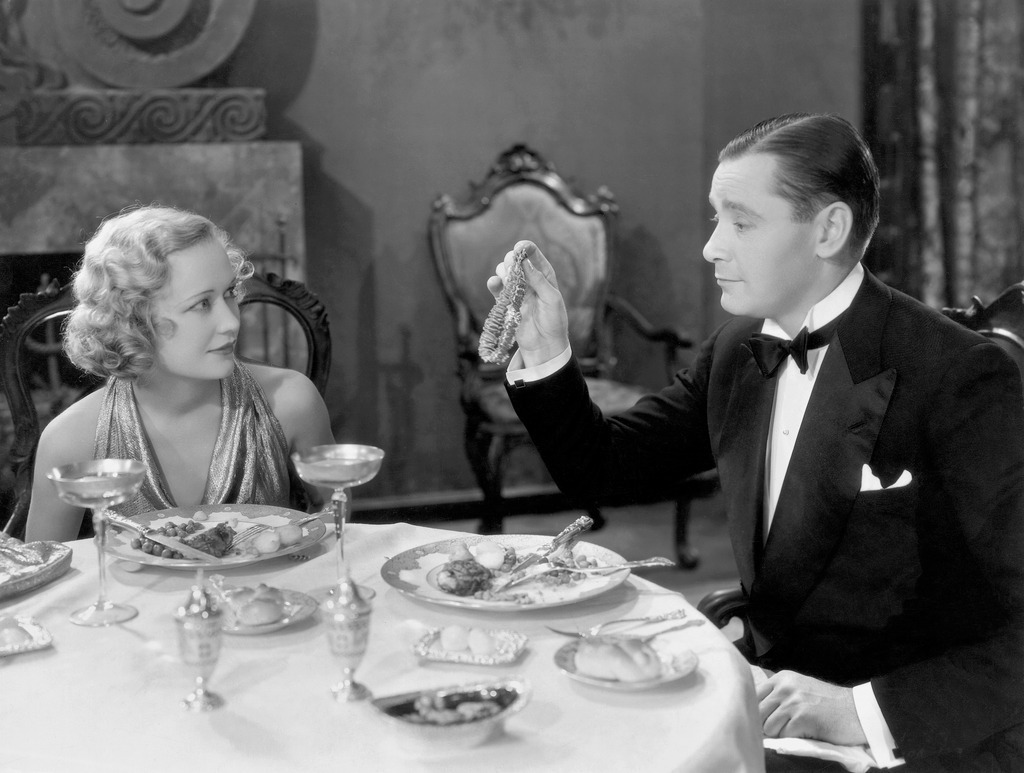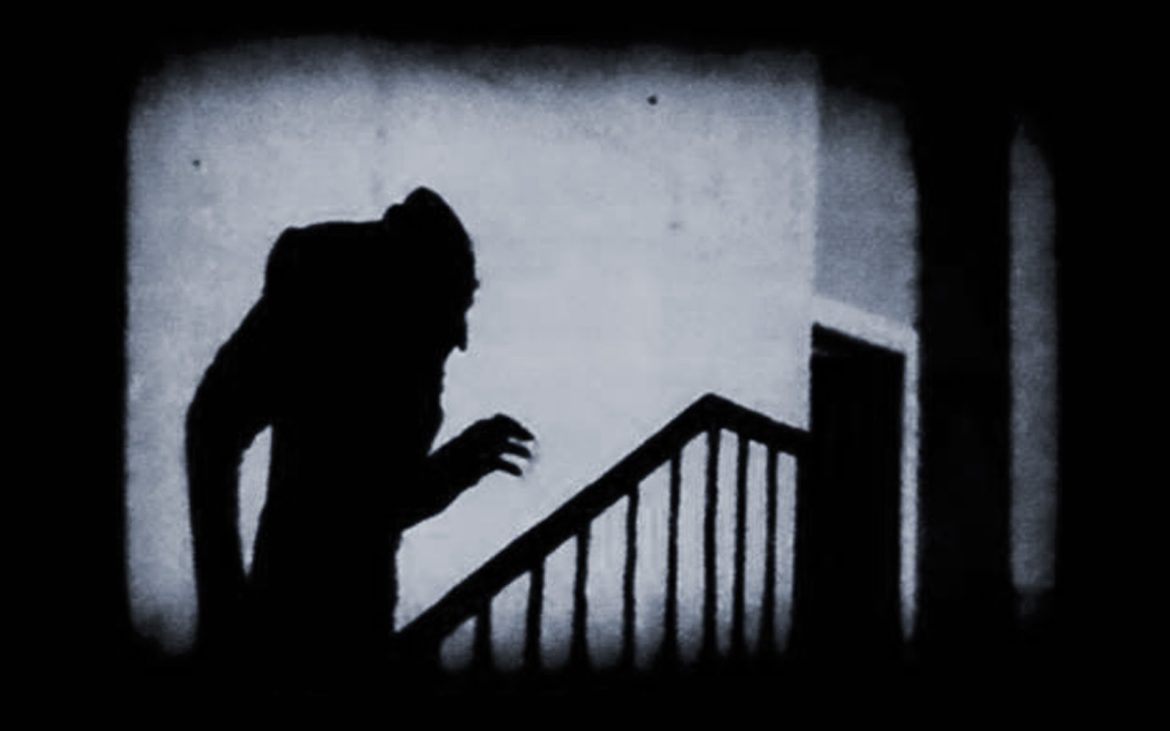There are many ways to approach science-fiction narratives, but one of the best has always been to create a lived-in world, filled with strange events and logic that often go unremarked upon by the characters. That’s always been part of the charm of the original Star Wars trilogy, for instance – you didn’t need to know what, exactly, a “nerf herder” or a “gundark” is, or where Ord Mantell is located, to get the points being conveyed.
Film
At the end of 2015, The Hateful 8 barnstormed across select theaters, a whirlwind, even prior to its release, of debate. Positions were staked well in advance, and much of it came down to rather esoteric arguments about 70 mm projection and the future of film.
With Carol, Todd Haynes cements his place as his generation’s Douglas Sirk, the master of decorous, ravishing melodramas focused on the plights of women, their interior lives manifesting in heightened visual splendor and the weight of the world pressing them down.
I’ve already covered my favorite films that came out in 2015. But that is only half the story. First-watches are at least as important, and probably more so.
Here are some of the films that meant the most to me that I saw this year, regardless of when they came out.
It’s a truism that top 10 lists are fundamentally a silly endeavor.
There’s no inherent value, and maybe even a whiff of distaste, to ranking anything, but it’s also, let’s face it, kind of fun. And year-end lists also provide markers, for ourselves and others, of what we enjoyed at a certain moment in time, and hopefully a bit about why.
What do you do when confronted with loss? Many of us flip through old photographs, read letters, watch videos from years gone by. Or, to bring it up to date, scroll through saved files of various kinds. Maybe you talk it through with those close to you, who understand and get the context and import and strange resonances.
John Crowley’s Brooklyn – an achingly earnest immigrant coming-of-age story, adapted by Nick Hornby from Colm Tóibín’s novel and featuring a revelatory performance from Saoirse Ronan – is a picture out of time.
Everything about it seems imported from an earlier period of film history: the total absence of cynicism, the self-assurance in its quiet moments, its elegant but understated framing, its close-ups on luminously lit faces, its resolute insistence on small personal dramas to provide context for the much larger ones that frame them all hearken back to another age.
In Felt, our lead Amy is haunted and, it would seem, somewhat damaged. We’re never told the exact nature of the trauma that has plunged her into a barely communicative fugue state, but it’s clear it was related to men and to some sort of (likely sexual) violation.
Part of an ongoing effort to watch each of the films in Roger Ebert’s Great Movies series. The introduction and full list can be found here.
As our shared monsters and shadowy nightmare figures go, the vampire is particularly stubborn in its refusal to vanish from the scene.
In Céline Schiamma’s Girlhood, it’s all about the eyes.
Specifically, the eyes of Marieme (Karidja Touré), a quiet, reserved teen living in the Parisian projects. Throughout this excellent and unique coming-of-age film, Marieme goes through a number of phases and re-inventions, like we all do, but the constant is a singular sense of self we register in her eyes.










